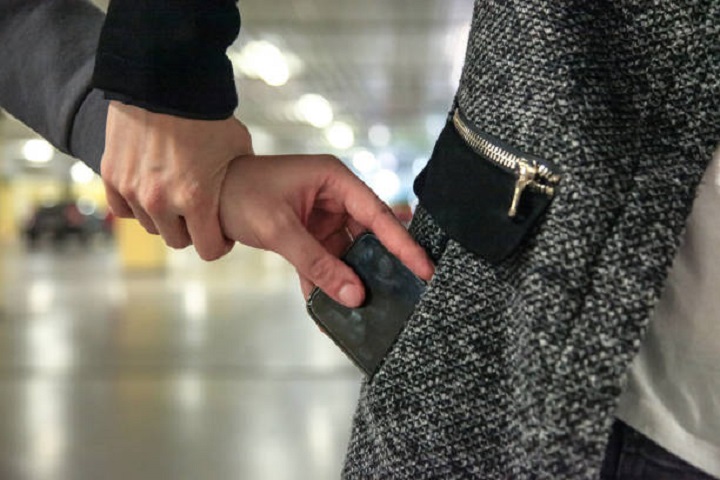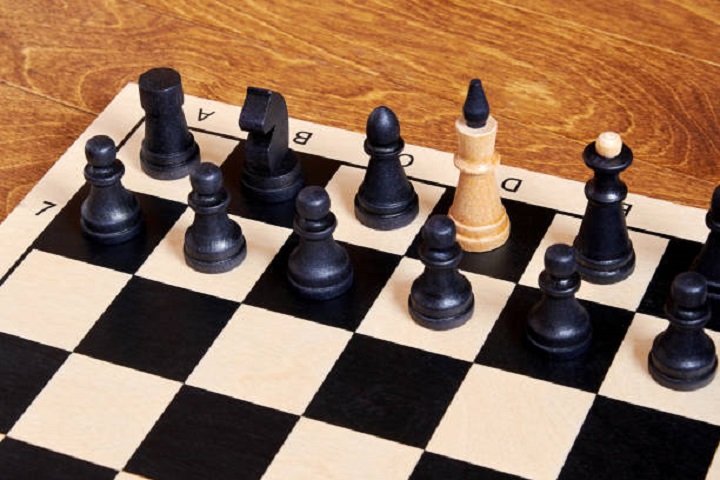Betrayal is a concept that has been explored and portrayed in various forms of literature, art, and media throughout history. It is a complex emotion that can leave deep wounds and scars, both in the individual who has been betrayed and in the betrayer themselves. But beyond the surface level of hurt and deceit, there lies a deeper symbolism within the act of betrayal.
In this blog post, we will delve into the two faces of betrayal and how symbols can reveal the true extent of its impact on our psyche and relationships.
Key Takeaways
- Betrayal holds a deeper spiritual meaning, shaking the foundations of our spirituality and reflecting our internal conflicts and faith.
- Images like a knife in the back or a broken bond convey the pain and shock of betrayal, while shattered glass and torn pictures reflect the fragmented nature of relationships post-betrayal.
- Cultural perspectives on betrayal vary across societies, some view it as deeply dishonorable, causing irreparable damage.
- Betrayal erodes trust and can lead to fear, insecurity, and questioning of our own worth.
- The emotional impact of betrayal can manifest as anger, sadness, or even numbness.
Exploring The Notable Spiritual Meaning of Betrayal
Betrayal transcends mere deceit; it delves into the profound realms of spirituality, unraveling the core of our beliefs and exposing the intricacies of trust. It serves as a catalyst for introspection, urging us to contemplate our values, beliefs, and the delicate nature of reliance.
1. Betrayal as a Test of Faith: When an individual we’ve placed our trust in breaches that trust, it challenges the very fabric of our faith. This betrayal forces us to reassess our convictions, leading us to question the validity of our judgments. The spiritual implications of betrayal lie in the profound lessons it imparts about our own nature and our capacity to navigate the intricate tapestry of human relationships.
2. The Erosion of Trust and the Quest for Meaning: Betrayal leaves us adrift, fostering a sense of disconnection and purposelessness. The spiritual facet of betrayal encompasses the quest for meaning within our experiences, prompting us to embark on a journey of self-discovery and derive solace from our individual spiritual paths.
3. The Imperative of Forgiveness and Compassion: Betrayal becomes a litmus test for our ability to forgive and exhibit compassion. It challenges us to relinquish resentment, fostering healing within our hearts. The spiritual essence of betrayal lies not only in forgiving the one who betrayed us but also in extending forgiveness to ourselves, allowing us to progress with love and compassion.
4. Contemplating Our Vulnerabilities: In the aftermath of betrayal, we are compelled to confront our own vulnerabilities and shortcomings. This introspective journey enhances self-awareness, prompting us to scrutinize our role in the betrayal. This introspection becomes an integral part of the spiritual odyssey towards personal growth and self-discovery.
5. Rediscovering Faith in Humanity: Despite the anguish borne of betrayal, exploring its spiritual dimensions enables us to rediscover faith in humanity. It serves as a stark reminder that betrayal is an inherent facet of the human experience, acknowledging the fallibility within each of us. Through the embrace of forgiveness and compassion, a profound reconnection with others occurs, reinstating our faith in the inherent goodness of humanity.
Unraveling the Threads of Betrayal: A Deep Dive into Its Symbolism
Betrayal, an intricate emotion laden with profound consequences, transcends the mere surface of anguish and deceit. It carries a rich tapestry of symbolism that unveils the true magnitude of its repercussions on our psyche and interpersonal connections. By dissecting the various facets of betrayal and scrutinizing its symbolic representations, a more profound comprehension of its far-reaching implications emerges.
A universally recognizable symbol of betrayal manifests in the archetypal image of a knife embedded in one’s back. This potent metaphor encapsulates the very essence of betrayal—a piercing of trust and loyalty. It vividly communicates the agony and disbelief experienced upon the revelation that an individual we believed to be reliable has turned adversarial. Another poignant symbol of betrayal lies in the imagery of a fractured bond, symbolizing the rupture of trust and the irreparable harm wrought by deceit.
Symbols associated with betrayal convey nuanced messages regarding the erosion of trust and the disintegration of loyalty, serving as constant reminders of the distress and bewilderment accompanying breaches of faith. Whether represented by shattered glass or torn pictures, these symbols mirror the fragmented state of relationships post-betrayal, where once-sturdy foundations have crumbled.
The scope of betrayal’s symbolism extends beyond tangible representations; it permeates metaphors and imagery found in literature, art, and various forms of expression. For instance, the snake serves as a metaphor for betrayal due to its longstanding association with deception and treachery. In Shakespeare’s “Julius Caesar,” the character of Brutus epitomizes betrayal, his actions contradicting professed loyalty to Caesar.
Exploring the intricate symbolism of betrayal enables a deep dive into the complexity of this emotion, laying bare the underlying wounds inflicted when trust is shattered, and loyalty discarded. By decoding these symbols, profound insights into the enduring impact of betrayal on our relationships and personal selves emerge. It stands as a testament to the enduring repercussions of betrayal, reaching far beyond immediate pain and leaving lasting scars on our capacity to trust and connect with others.

Varied Perspectives on Betrayal: Different Traditional and Cultural Meaning
Betrayal, a profoundly emotional and personal encounter, undergoes diverse interpretations across cultures and societies, revealing distinctive perspectives on how this phenomenon is comprehended and addressed. Examining betrayal through various traditional and cultural lenses offers insights into its multifaceted nature.
Five distinctive cultural viewpoints illuminate the complexity of betrayal:
1. Western Cultures: Within Western societies, betrayal is deemed deeply dishonorable, capable of inflicting irreparable harm to relationships. The focal points are personal integrity, trust, and loyalty. The act of betrayal is perceived as a violation of these values, leading to the dissolution of connections and a forfeiture of respect.
2. Eastern Cultures: In contrast, certain Eastern cultures prioritize forgiveness and reconciliation. Betrayal is viewed as an inherent facet of the human experience, with forgiveness considered a virtuous response. The emphasis is on attaining understanding, facilitating healing, and restoring harmony within relationships.
3. Indigenous Cultures: Indigenous perspectives often adopt a holistic and communal stance toward betrayal. They contend that betrayal impacts not only the individuals involved but also the broader community. Adopting restorative justice and communal healing practices becomes pivotal in addressing the repercussions of betrayal and reinstating trust within the community.
4. Religious Perspectives: Various religions, including Christianity, Islam, and Buddhism, offer unique interpretations of betrayal. These perspectives may underscore the significance of forgiveness, the moral implications of betrayal, or the karmic consequences of deceit.
5. Historical Perspectives: Historical events and cultural narratives significantly shape the collective understanding of betrayal. Instances such as political betrayals or revolutions can profoundly influence societal perceptions of betrayal. Cultural anecdotes and legends often mirror these historical betrayals, influencing how they are perceived.
Appreciating these diverse perspectives on betrayal underscores the intricate nature of this emotion. It serves as a reminder that cultural context plays a pivotal role in shaping beliefs, values, and responses to betrayal. By acknowledging and honoring these varied viewpoints, individuals can foster empathy and attain a deeper comprehension of the intricate dynamics surrounding betrayal in diverse cultures.
Also Check – Dreaming of a Wristwatch: What Do Watches Symbolize in Dreams?
The Lasting Effects of Betrayal on Relationships and Trust
Experiencing betrayal is a profound emotional wound that leaves enduring scars, affecting both our mental and emotional well-being. Its repercussions extend beyond just the immediate relationship, impacting our capacity to trust and engage with others on a profound level. Understanding the lasting effects of betrayal on relationships and trust is crucial for initiating the process of healing.
1. Undermining Trust: Betrayal shakes the very bedrock of trust within a relationship. Once betrayed by someone we held faith in, the challenge of extending trust to others becomes formidable. We may adopt a guarded and skeptical approach, persistently scrutinizing the motives and intentions of those around us. This erosion of trust significantly impedes our ability to establish deep and meaningful connections.
2. Fear and Insecurity: Betrayal plants seeds of fear and insecurity within us. The apprehension of experiencing hurt again can restrain us from fully embracing new relationships. This fear acts as a barrier, impeding our pursuit of love and companionship and creating a psychological distance between ourselves and potential partners.
3. Self-Doubt and Questioning Worth: Betrayal frequently triggers self-doubt and prompts us to question our intrinsic value. Pondering what we may have done wrong or why we fell short in the eyes of the betrayer can lead to feelings of inadequacy. Such emotions can severely impact our self-esteem and confidence, making the cultivation of healthy relationships a challenging endeavor.
4. Challenges in Vulnerability and Emotional Intimacy: Betrayal introduces obstacles to vulnerability and emotional openness. The fear of being hurt anew compels us to construct emotional barriers, hindering genuine connection. This hindrance prevents the experience of authentic emotional intimacy with others.
5. Long-term Impact on Relationships: The repercussions of betrayal endure well beyond the initial pain. Carrying the emotional baggage of betrayal into subsequent relationships can result in projecting past experiences onto new partners. This sets the stage for a cycle of mistrust, potentially sabotaging future relationships.
Addressing these enduring effects is pivotal to the healing process, involving self-reflection, forgiveness, trust reconstruction, and closure. Acknowledging the profound impact of betrayal on both our relationships and personal well-being empowers us to cultivate healthier, more fulfilling connections in the future.
The Emotional Impact of Betrayal and Its Expression
Betrayal transcends the mere act of deception; it embeds itself as a profound emotion, leaving an enduring mark on our emotional equilibrium. The repercussions of betrayal manifest diversely, ranging from intense anger and profound sadness to a pervasive sense of numbness or detachment. Navigating through these emotions can be overwhelming, yet it is imperative to articulate and process them for the sake of healing and progression.
Delving into the emotional aftermath of betrayal reveals five pivotal insights, shedding light on its impact and the channels through which emotions can be expressed:
1. Anger: The violation of trust and loyalty inherent in betrayal often elicits a surge of anger. While this emotion may be directed towards the betrayer, it is equally vital to acknowledge and process the internal anger. Articulating this anger through constructive means, such as journaling or confiding in a confidant or therapist, facilitates the release of pent-up emotions.
2. Sadness: Profound sadness and grief accompany betrayal, as one mourns not only the rupture of a trusted relationship but also the dissolution of associated dreams and expectations. Permitting oneself to grieve becomes a crucial component of the healing process.
3. Numbness: Betrayal may, at times, induce a state of emotional numbness or detachment—a self-preserving mechanism to cope with the pain. Recognizing and addressing these emotions is essential. Seeking guidance from a therapist or counselor aids in navigating these feelings and reconnecting with one’s emotional well-being.
4. Shame and Self-Blame: Feelings of shame and self-blame may arise, complicating the task of differentiating one’s intrinsic worth from the actions of the betrayer. It is imperative to grasp that betrayal does not define individual value. Cultivating self-compassion and challenging negative self-talk becomes pivotal in alleviating these emotions.
5. Expression and Communication: The cathartic and healing potential of expressing emotions and sharing experiences is invaluable. Whether through conversations with trusted individuals, journaling, or engaging in creative outlets such as art or music, adopting healthy channels for emotional expression facilitates the healing process.
The complexity and deeply personal nature of the emotional fallout from betrayal underscore the uniqueness of each healing journey. Acknowledging and articulating emotions, seeking support, and fostering self-compassion collectively pave the way for navigating the intricate emotional landscape of betrayal, fostering healing, and rebuilding trust over time.

Betrayal and the Healing Process: Finding Peace and Closure
Betrayal can leave deep wounds that impact our relationships and our ability to trust. The healing process after betrayal is essential for finding peace and closure.
Here are five key points on finding peace and closure after betrayal:
1. Self-reflection and self-care: Take time to reflect on your emotions, thoughts, and reactions to the betrayal. Engage in self-care practices such as meditation, exercise, or journaling to process your emotions and prioritize your well-being. By taking care of yourself, you can begin to heal from the pain of betrayal.
2. Forgiveness: Forgiveness is a vital step in the healing process, but it doesn’t mean condoning the betrayal or forgetting the pain it caused. It means releasing yourself from the burden of resentment and anger. Forgiveness is a choice that allows you to find inner peace and move forward.
3. Rebuilding trust: Rebuilding trust takes time and effort. It requires open and honest communication with the betrayer. Start by setting boundaries and expressing your needs. Observe the actions of the betrayer over time to determine if they are genuinely remorseful and committed to making amends. Rebuilding trust is a gradual process that requires patience and consistent effort.
4. Finding closure: Finding closure involves accepting the reality of the betrayal and letting go of any lingering attachments. It means embracing new beginnings and focusing on your own personal growth. Seek closure through rituals or practices that help you symbolically let go of the pain and move forward with a sense of peace and closure.
5. Seeking support: Surround yourself with a support system of trusted friends, family, or a therapist who can provide guidance and support during the healing process. Talking to others who have experienced betrayal can also provide insight and comfort. Sharing your story and emotions with trusted individuals can be cathartic and aid in the healing process.
Remember, the healing process after betrayal is unique to each individual. Be patient and kind to yourself as you navigate the path towards finding peace and closure. With time, self-reflection, forgiveness, and support, you can heal from the wounds of betrayal and find a renewed sense of peace and happiness in your life.

Conclusion
Betrayal is a complex emotion that has the power to leave deep wounds and scars on both the betrayer and the betrayed. Throughout this blog post, we have explored the two faces of betrayal and how symbols can reveal the true extent of its impact on our psyche and relationships.
From the notable spiritual meaning of betrayal to its profound symbolism, we have delved into the deeper implications of this emotion. Betrayal not only shakes the foundations of our spirituality but also reflects our own internal conflicts and tests our faith or belief systems. Symbols such as a knife in the back or a broken bond carry powerful messages about the loss of trust, shattering of loyalty, and the pain of deceit.
In the end, betrayal is a painful experience, but it also presents an opportunity for growth and self-discovery. By acknowledging and understanding its impact, we can navigate the healing process and emerge stronger and more resilient. It is through this journey that we can create healthier and more fulfilling relationships, free from the wounds of betrayal.
Remember, healing takes time, patience, and self-compassion. Be gentle with yourself as you navigate the path towards peace and closure.
Frequently Asked Questions
1. How do symbols reveal the true impact of betrayal?
Symbols carry powerful messages about the loss of trust, shattering of loyalty, and the pain of deceit. The classic image of a knife in the back, for example, represents the act of betrayal itself and conveys the shock and pain of discovering that someone we trust has turned against us. Symbols like shattered glass or a broken bond reflect the fragmented nature of relationships after betrayal, where once-solid foundations have crumbled. By examining these symbols, we gain a deeper understanding of the profound implications of betrayal on our psyche and relationships.
2. Can betrayal have spiritual implications?
Yes, betrayal can have notable spiritual meaning. It is often seen as a reflection of our own internal conflicts and a test of our faith or belief systems. When trust is broken, it can shake the foundations of our spirituality, leaving us questioning our values and the very nature of our existence. The spiritual meaning of betrayal invites us to reflect on the nature of our relationships, the fragility of trust, and the need for forgiveness and compassion.
3. How does betrayal impact relationships and trust?
Betrayal can have lasting effects on relationships and trust. It can erode trust, instill fear and insecurity, and make it challenging to form deep connections with others. The fear of vulnerability can lead to a breakdown in communication and emotional intimacy. It can also cause us to question our own worth and value. Rebuilding trust takes time and effort, but it is possible with consistent and open communication. Healing from betrayal involves self-reflection, forgiveness, and finding closure.
4. How can someone heal after betrayal?
Healing after betrayal involves self-reflection, forgiveness, rebuilding trust, and finding closure. It requires examining our own emotions, thoughts, and reactions to the betrayal, and making positive changes in our own lives. Forgiveness does not mean condoning the betrayal but releasing ourselves from negative emotions. Rebuilding trust takes time, and observing the betrayer’s actions over time can help determine if they are genuinely remorseful. Finding closure involves accepting the betrayal and embracing new beginnings. It’s important to surround ourselves with supportive friends and loved ones who can help us through the healing process.








